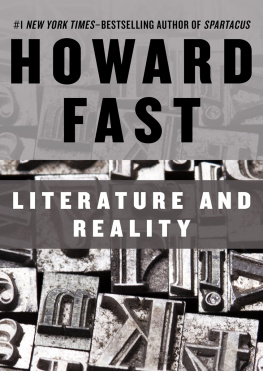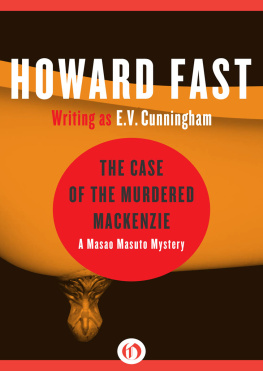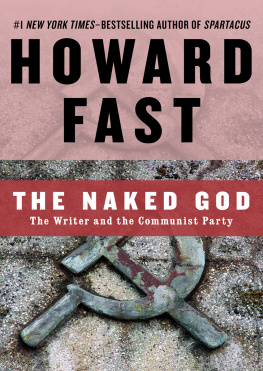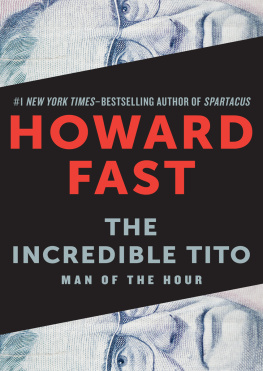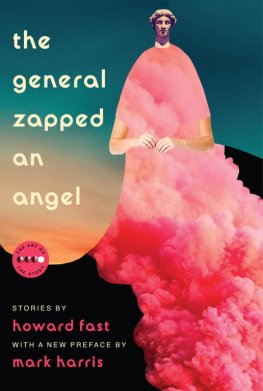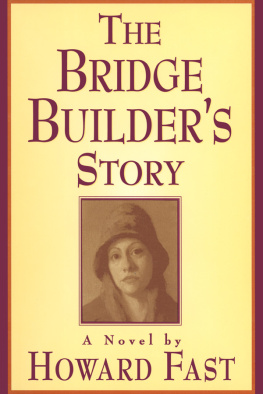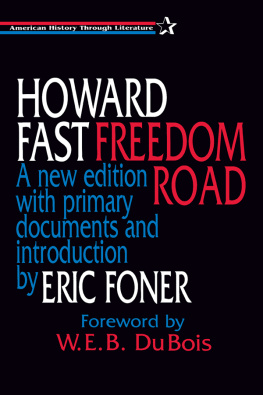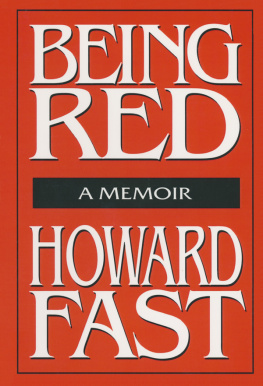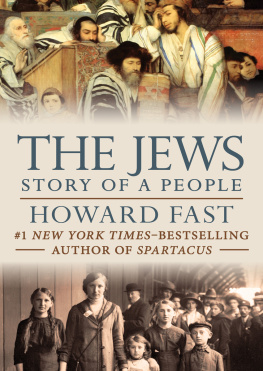dedication
In the memory of
Ralph Fox and Christopher Caudwell,
who believed that the practice of literature
could not be separated from the struggle
for mans liberation; and who, in defense of that belief,
laid down their lives in Spain,
fighting for the freedom of Spain and mankind,
against Franco and against fascism.
ALL the schools, styles, and fashions in literature, in other times as well as today, have come into existence through the particular relationship of an author or a group of authors to objective reality. Howsoever these schools and fashions in literature may designate themselves, they can be quite adequately understood through an investigation of the writers relationship to reality; the application of any other set of standards can only lead to confusion, and very often to the erection of a philosophical structure wherein obscurity is enthroned and ignorance deified.
Then, indeed, a strange and shoddy piece of cloth is woven, the unraveling of which becomes a task of some consequence; yet unless that particular cloth is taken apart, unless each shoddy thread of it is exposed to the light of day, we are bound to witness a steady destruction of standards, a process of corruption which is all too evident today. Literature has always been a most precise reflection of the society which produced it, and in a society rent by contradictions, strangling in its own economic chaos, and looking fearfully to a hideous world war as a possible solution, a great deal of that societys literature will quite naturally be far from healthy. The literature, creative and critical, of America is sick, deeply sick; only a great progressive upsurge can cure it. While it may be certainly stated that the progressive upsurge is on its way, one of the immediate steps to be undertaken is an examination of the illness, so that the cure may have some sense and direction.
Much of the essay which follows will be occupied with an investigation of the nature of reality in terms of its literary reflection, as well as the use of the realistic method in the attempt to portray life truthfully. However, when I speak of reality, it should be noted here that I do not refer to any absolute, but to the historically relative understanding of the truth at the moment when the particular literary product comes into being. Truthful writingwhich I use as the highest criterionis always dependent upon the relationship of the writer to reality, but the truth itself must be seen in the dialectical sense, which, to quote M. Rosenthal and P.Yudin, the Soviet philosophers, in Handbook of Philosophy, recognizes the relativity of our knowledge, not in the sense of a denial of objective truth, but in the sense of the historical limitations of the approximation of our knowledge to this truth.
I do not propose the essay which follows as anything more than a beginning of this examination; yet a beginning must be made somewhere. We must take a full grip on this matter of reality and literature; we are at a time when all of mankind is being projected into a face-to-face relationship with reality, and writers must march at the front, not at the rear. Theirs is the task of communicating the nature of reality to masses of people, and therein is their art and their glory; for the very nature of their work makes it possible for them to extract the essence of human hope and fear and suffering and triumph. But to do this, they must see the world and not a shadow of it.
VERY NEAR the top of what I have, in the past, rather indelicately called the cultural dung heap of reaction sits Franz Kafka, one of the major Olympians in that curious shrine the so-called new critics and their Trotskyite colleagues have erected. Mr. Kafka is treasured as well as read; in a dozen literary quarterlies and little magazines, joss sticks are burned to him, and his stilted prose is exalted as a worthy goal. Worthy or not, that goal is certainly interesting, for in the creation of a shadow world, a world of twisted, tormented mockeries of mankind, Mr. Kafka holds a very high place. It is worth examining the substance of that throne.
Perhaps the most widely read of Kafkas work, here in America, is a tale called Metamorphosis, which narrates in great detail how a German traveling salesman woke up one morning and discovered that he was a cockroach.
Now, although there is satirical intention in Kafkas tale, he departs from the satirists of the past in the absolute literal presentation of his point. It is much as if, having once proceeded to put down his idea upon paper, he was carried away by a conviction of the reality of the situation he had conceived. Let me quote the first two paragraphs of the story to make this plain:
As Gregor Samsa awoke one morning from a troubled dream, he found himself changed in his bed to some monstrous kind of vermin.
He lay on his back, which was as hard as armor plate, and, raising his head a little, he could see the arch of his great brown belly, divided by bowed corrugations. The bedcover was slipping helplessly off the summit of the curve, and Gregors legs, pitiably thin compared with their former size, fluttered helplessly before his eye.
Just this will give you a sense of the horror Kafka evokes in this story, and the evocation of horror is precisely the result of the literal presentation of the situation. Whatever Kafka intended, his product is not satire; satire is a means whereby irony, ridicule, and sarcasm are used to expose tyranny, vice, folly, and stupidity; and thereby satire becomes a shortcut to reality. But in this story, Kafka does not direct himself toward such exposure; he is concerned only with proving that a certain type of human being is so like a cockroach that it is entirely plausible for him to wake up one morning and discover a natural metamorphosis has taken place. And throughout the remainder of the story, with a world of intricate detail concerning the various problems of a man who is a cockroach, Kafka reiterates his thesis.
Horror and nausea are the effects Kafkas tale have on the reader, but what is the purpose? We know that men do not turn into monstrous cockroaches overnight, and we also know that the German petty bourgeois, for all the despicable qualities he may exhibit, is far, far indeed from a cockroach. It was no army of cockroaches that devastated half the civilized worldwhat then is Kafkas purpose? In his mind, he has performed the equation; man and roach are the same; they are each as worthy as the other; they are each as glorious as the other; they cancel outand thereby we have the whole miserable philosophy of the new critics, of the new poets, of the avant garde of the Partisan Review, a philosophy which, to quote Milton Howard, in the periodical Mainstream, preaches to the educated classes of contemporary America, confronted by the enormous inhumanity of capitalist society, that their sole cultural recourse lies in a literature which is presumably in the great modern tradition because it is based on helplessness, disgust, self-loathing, mysticism, and contempt for social action.





